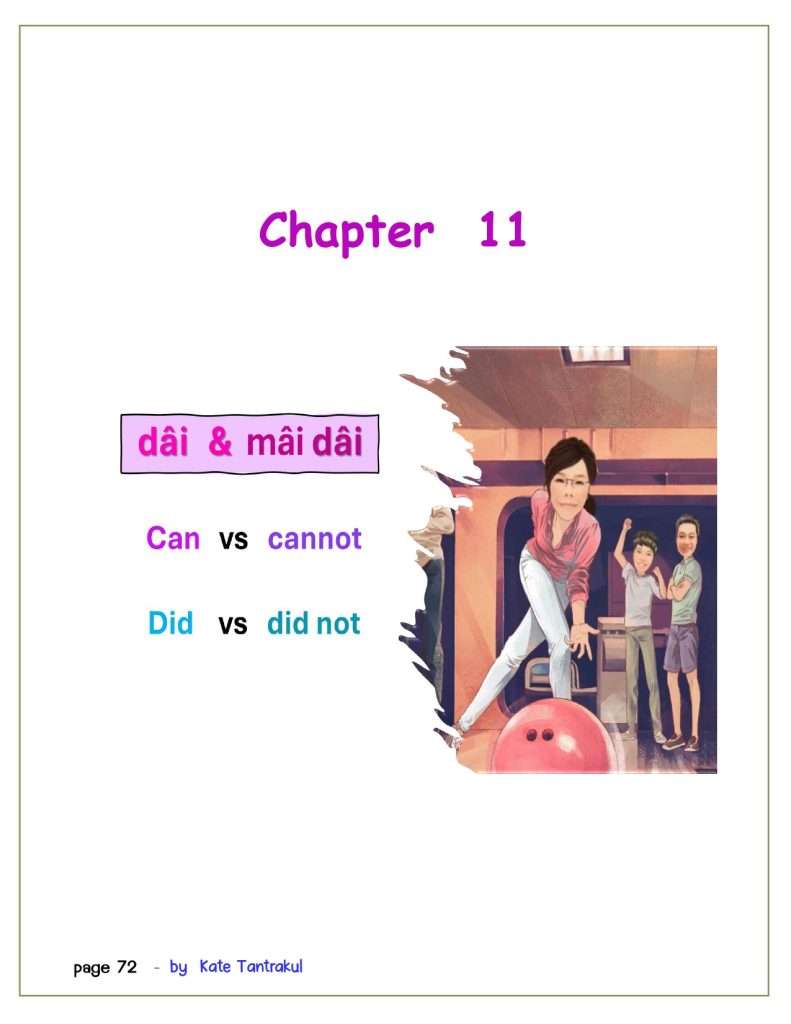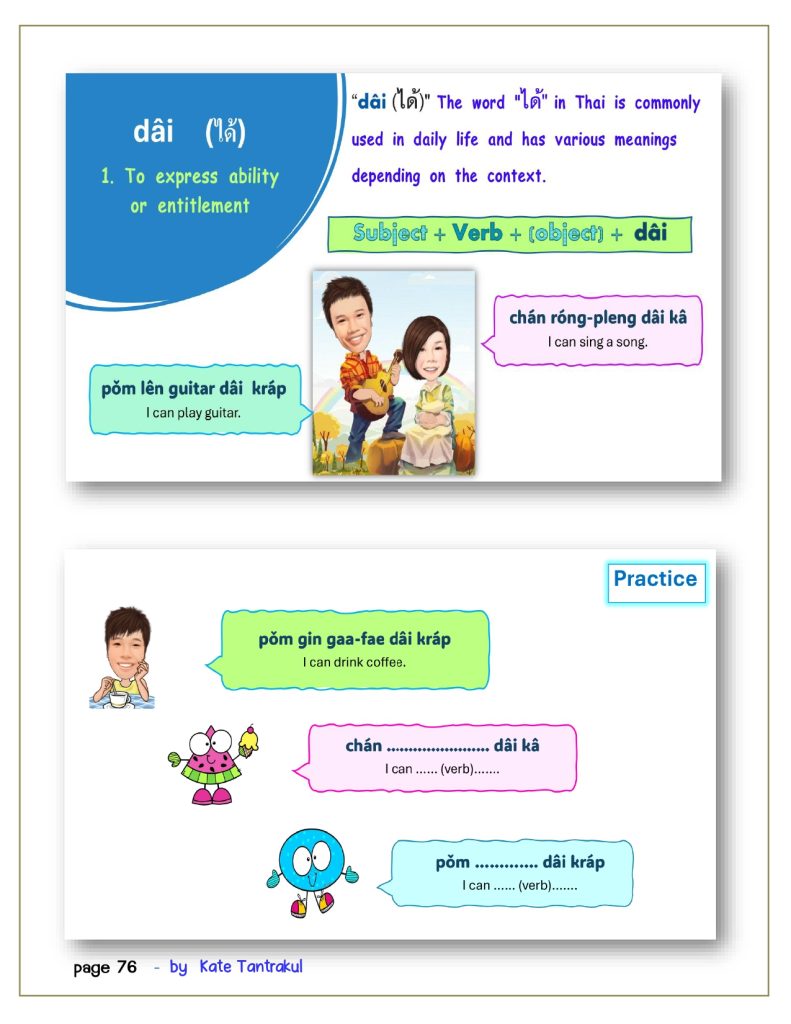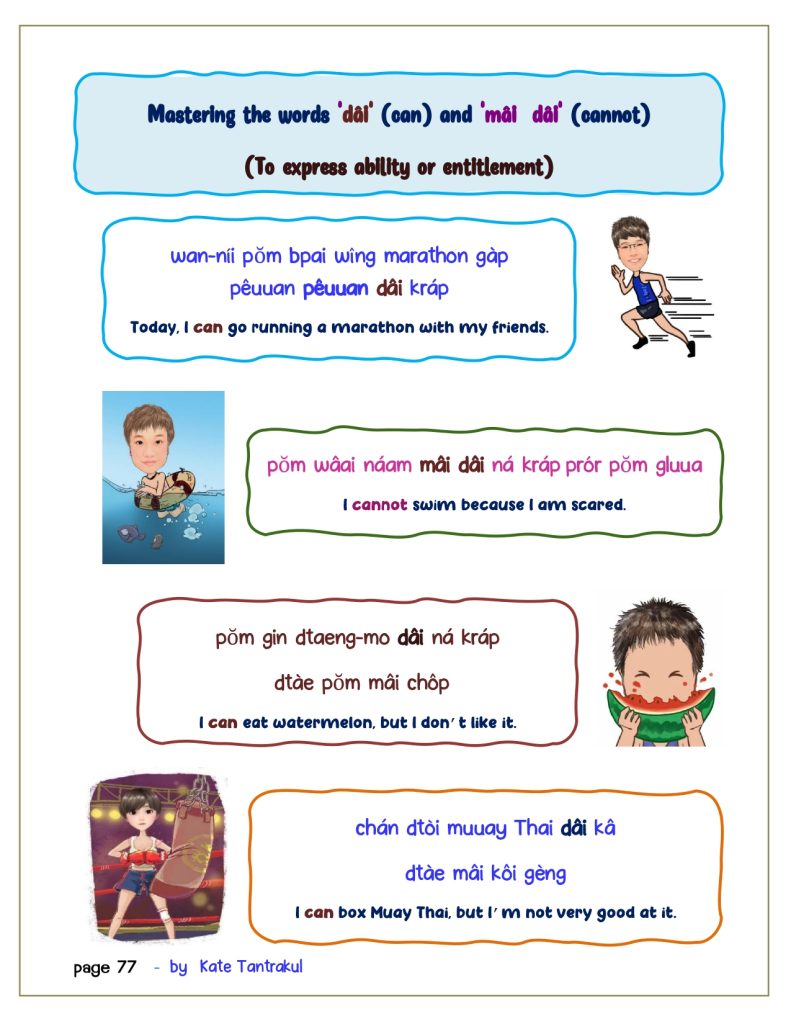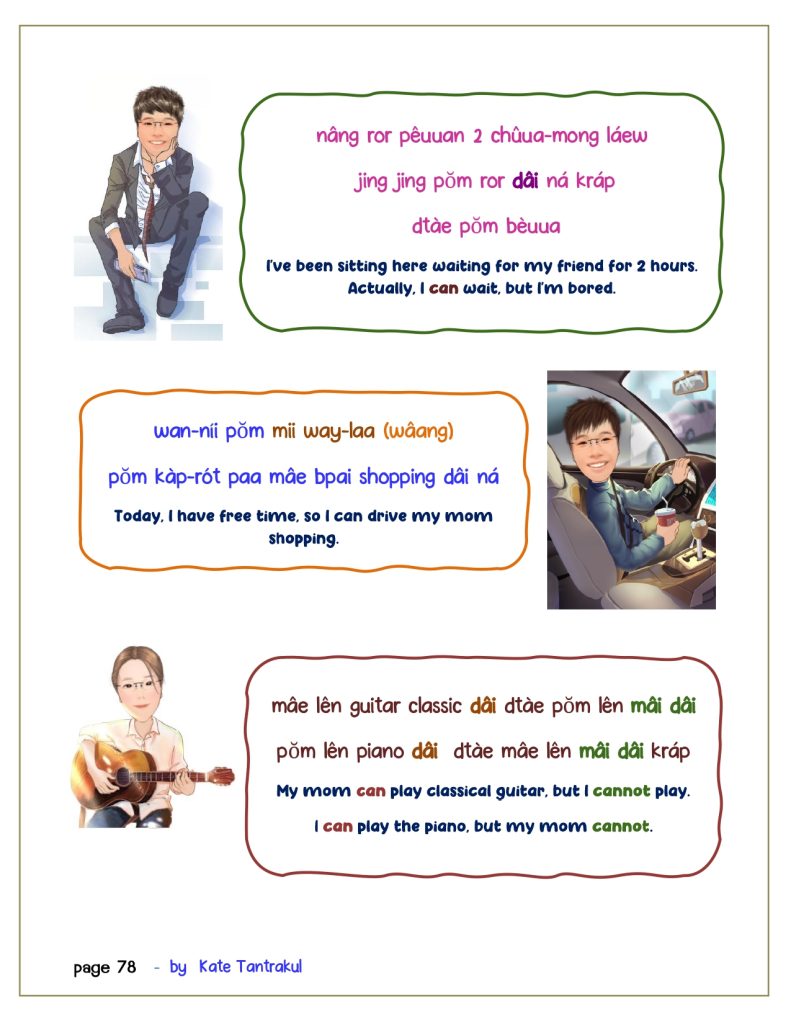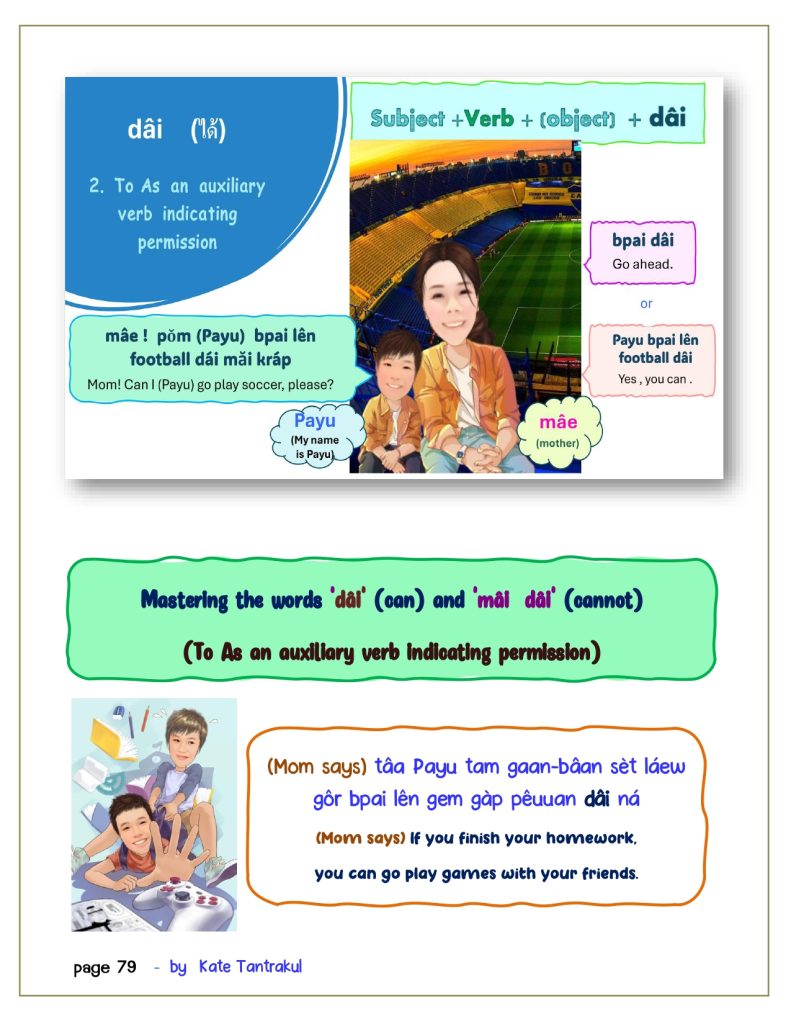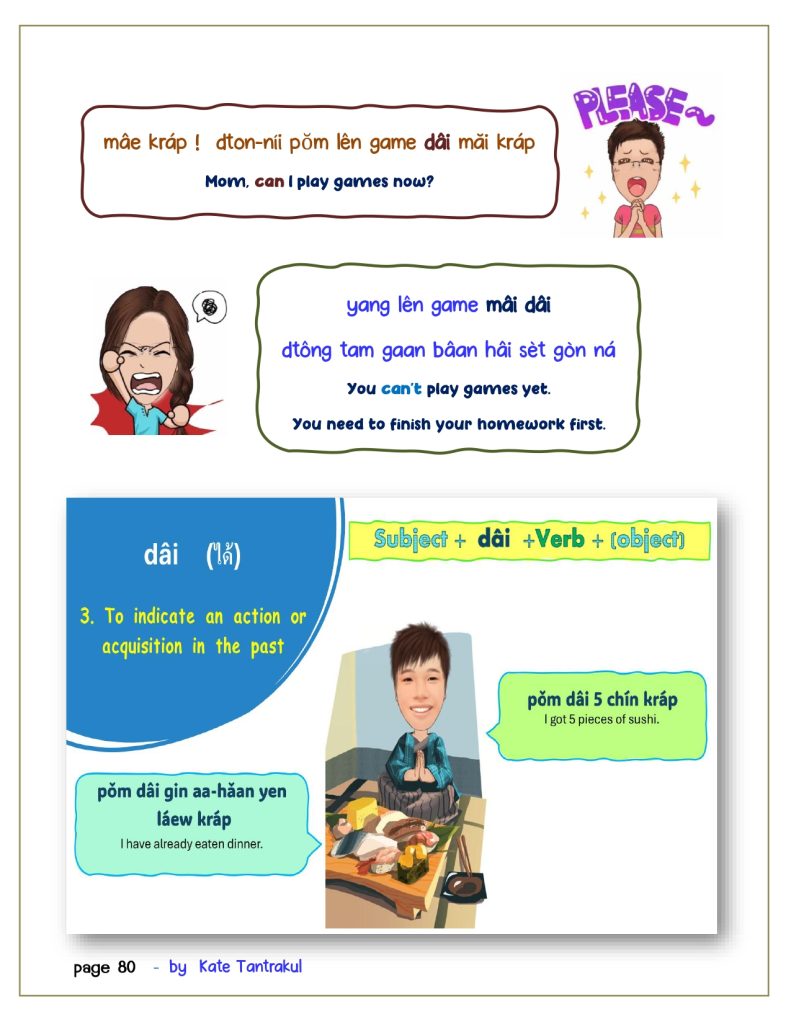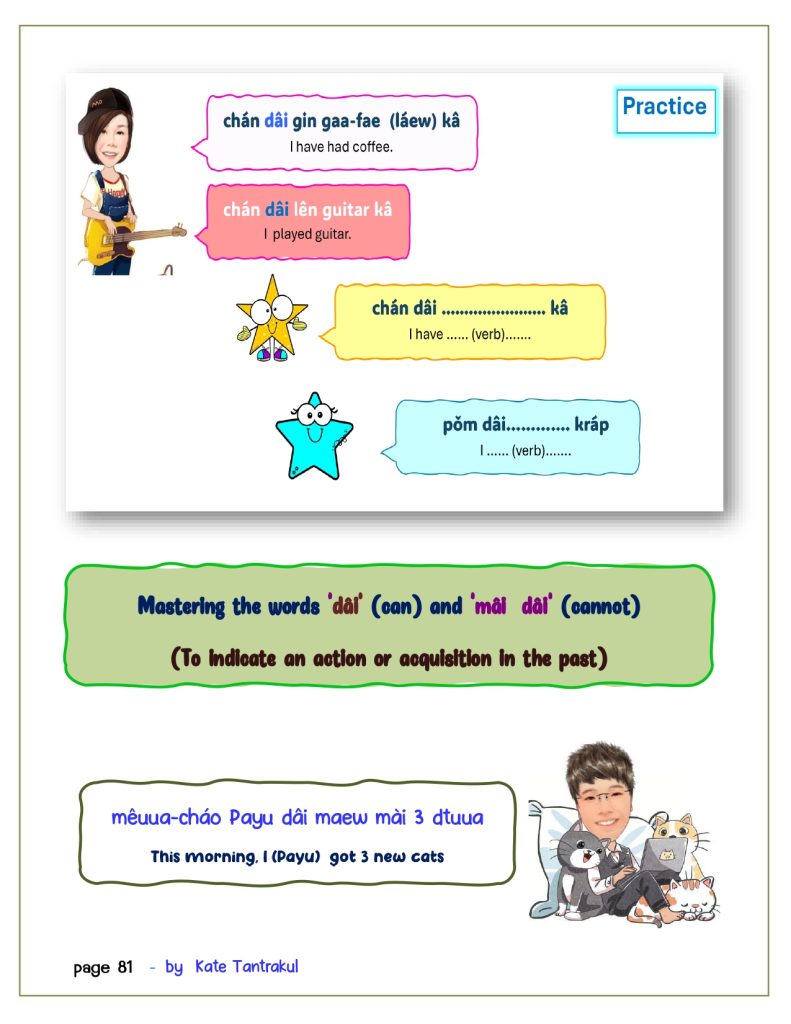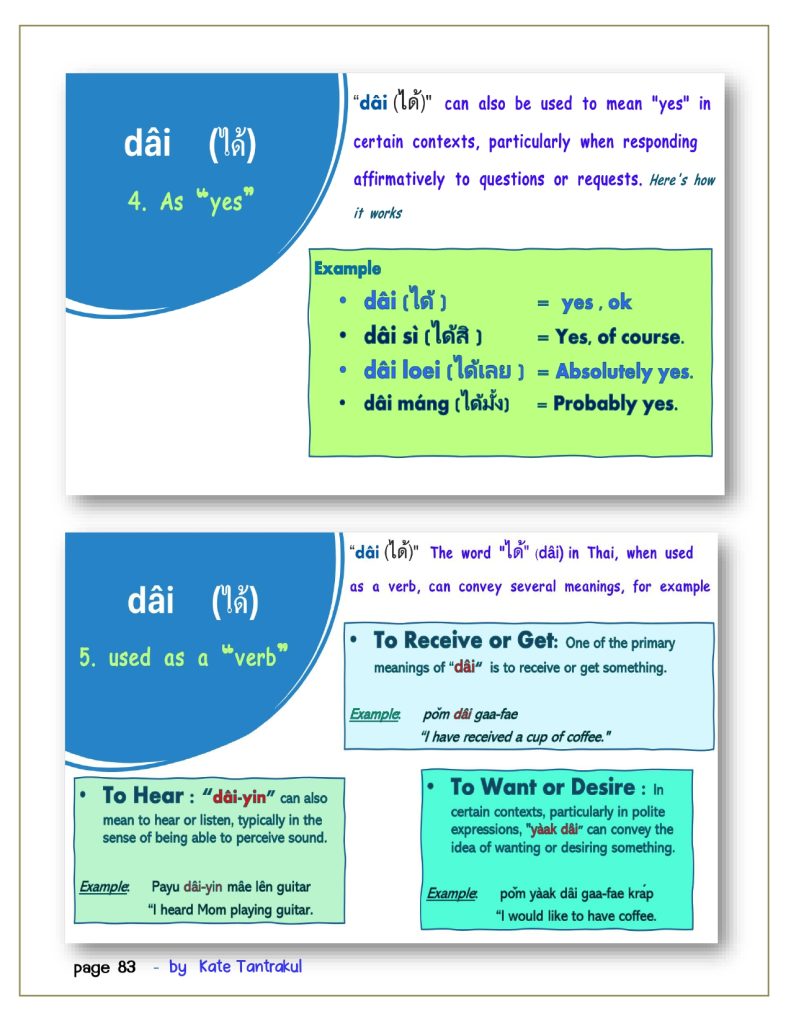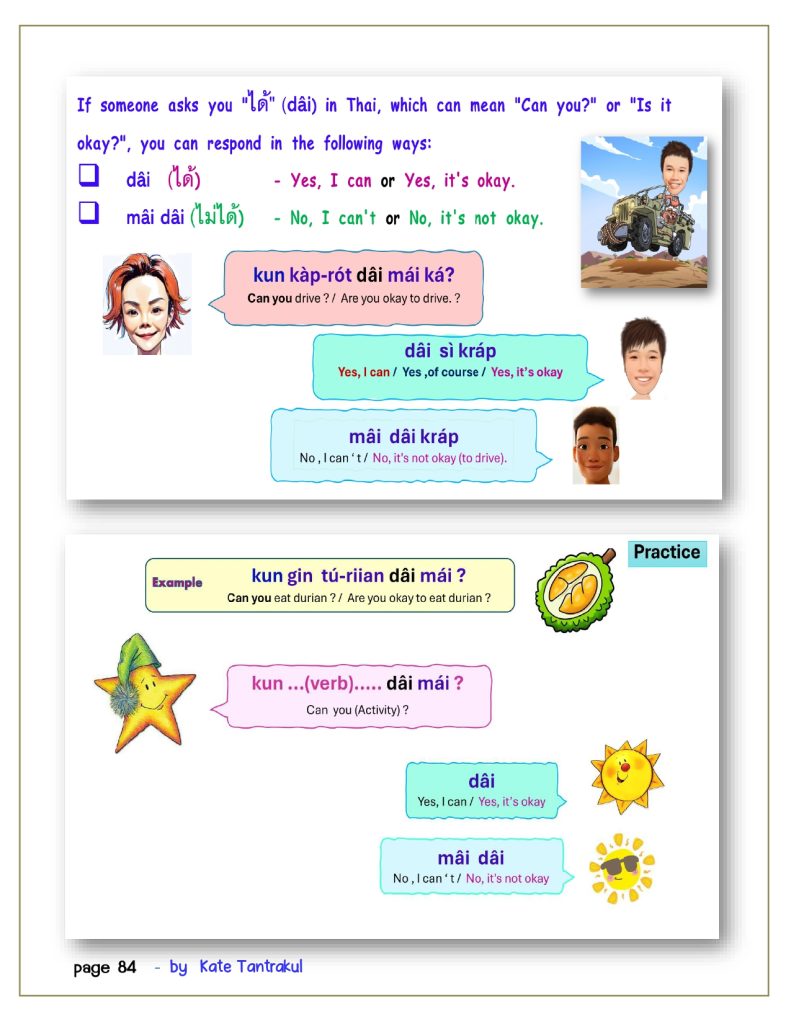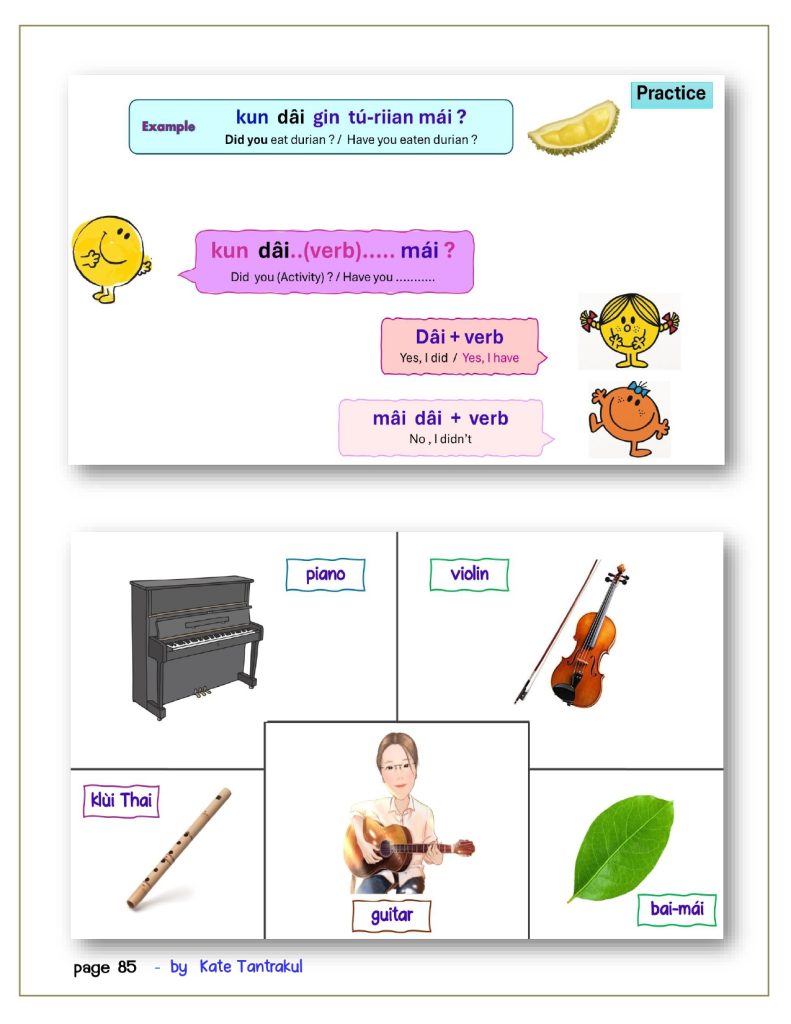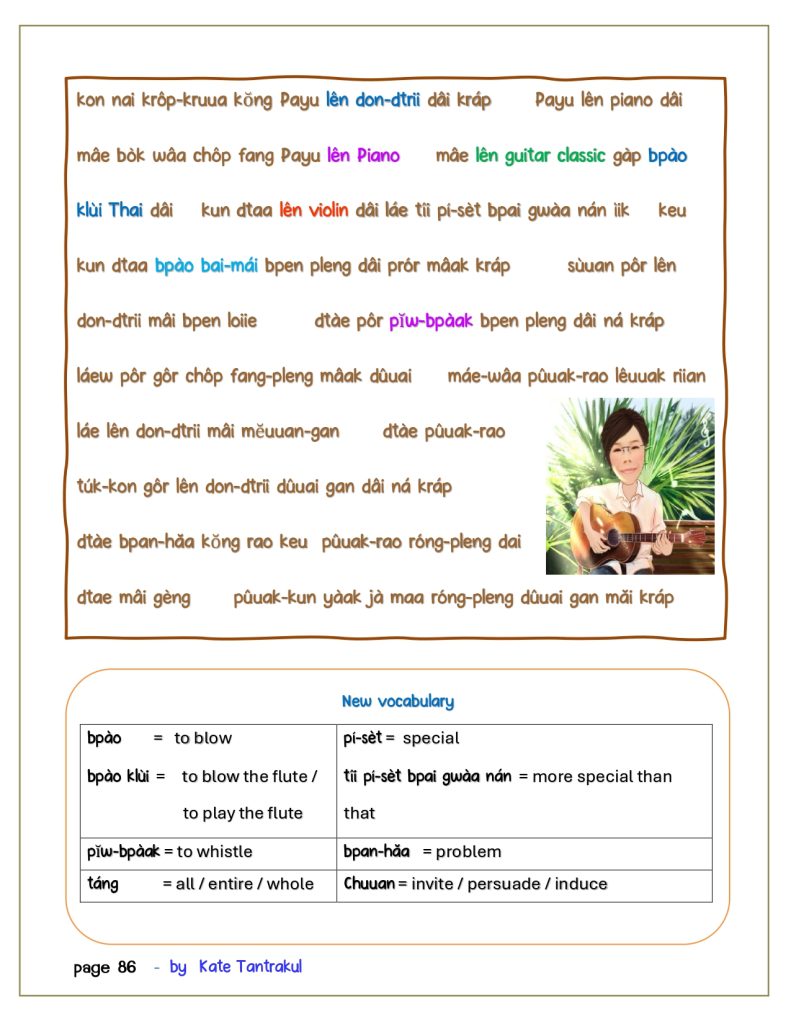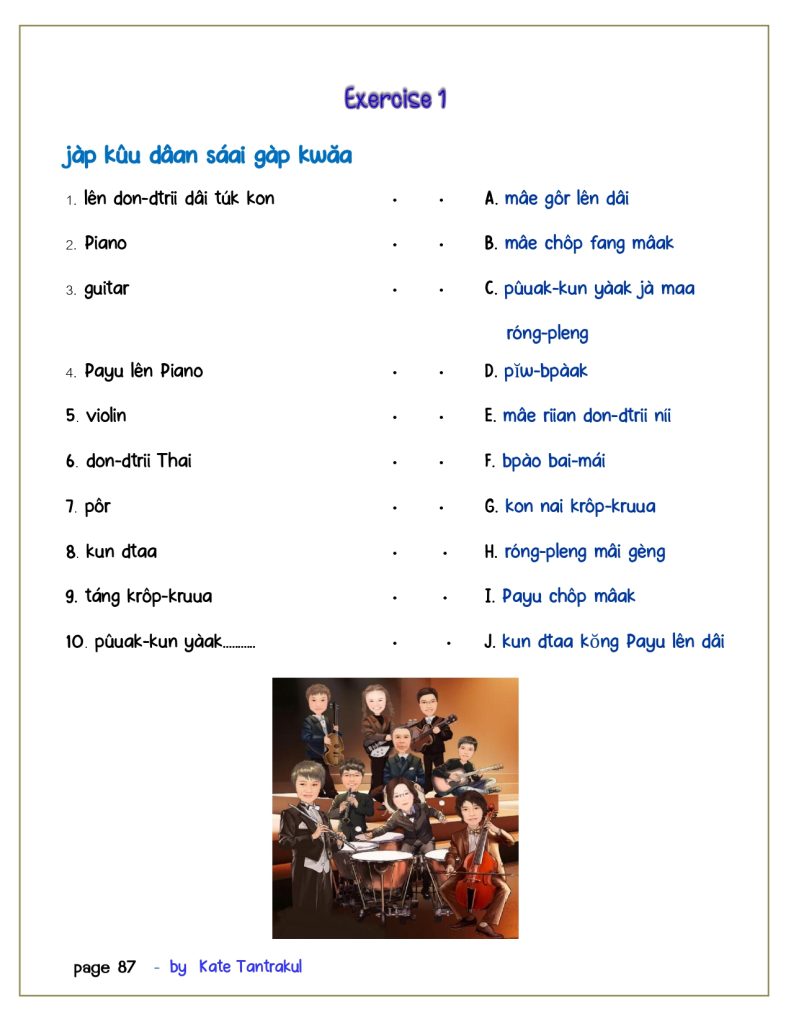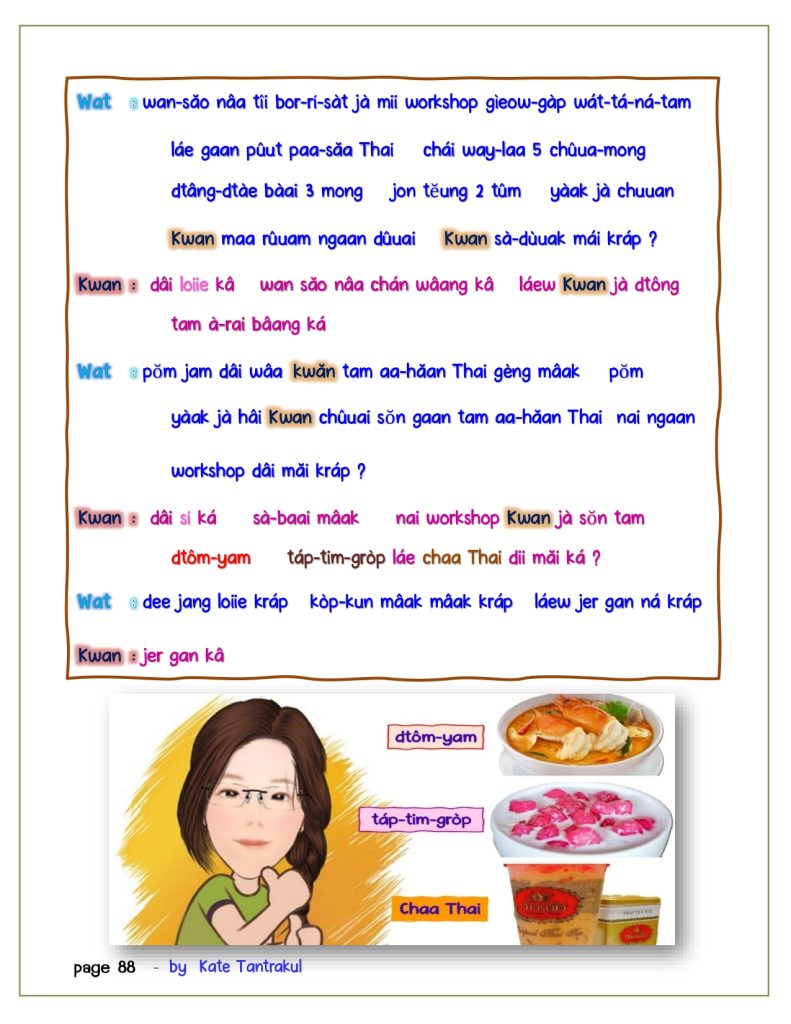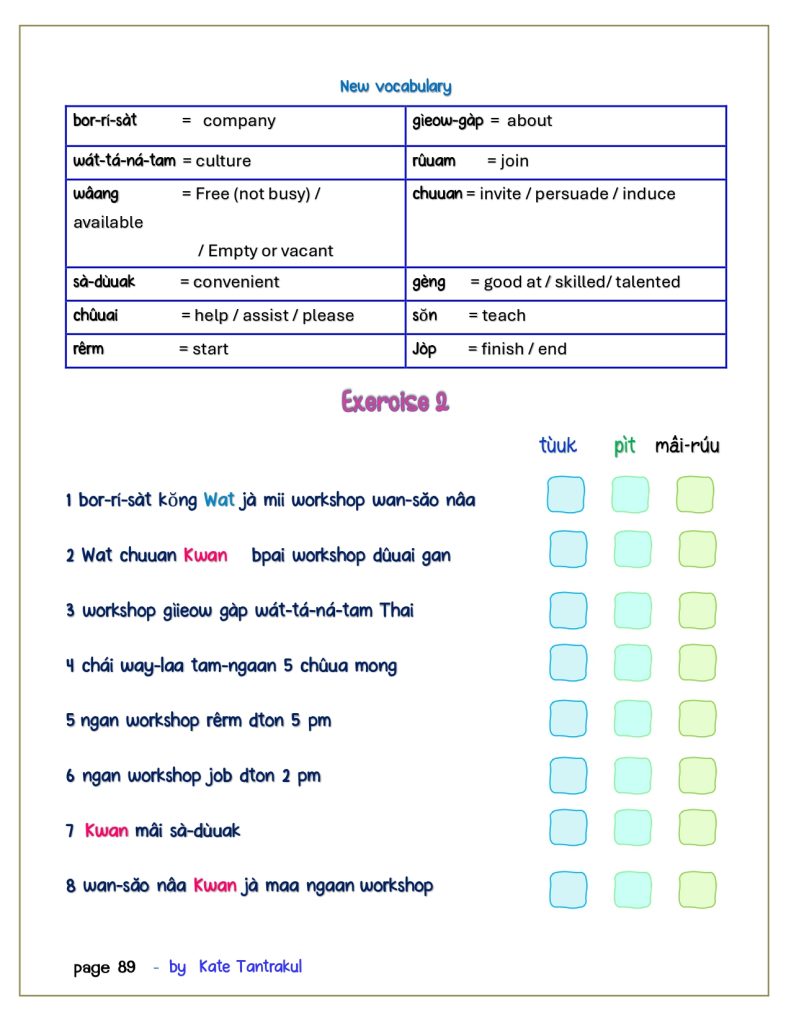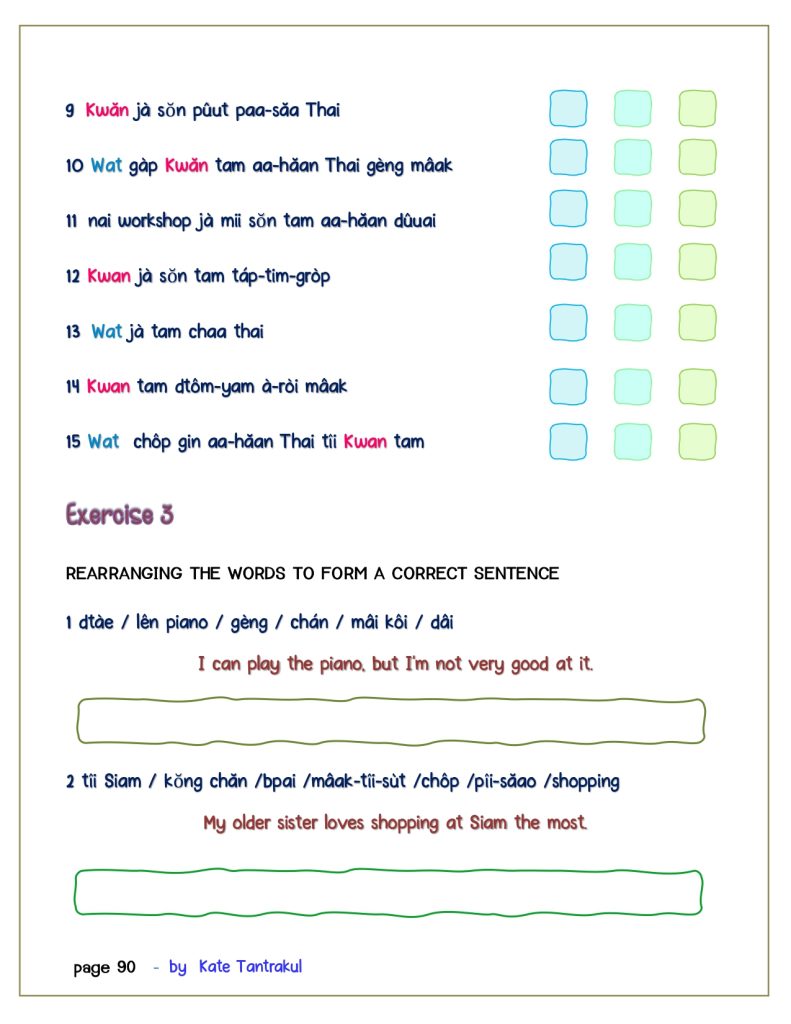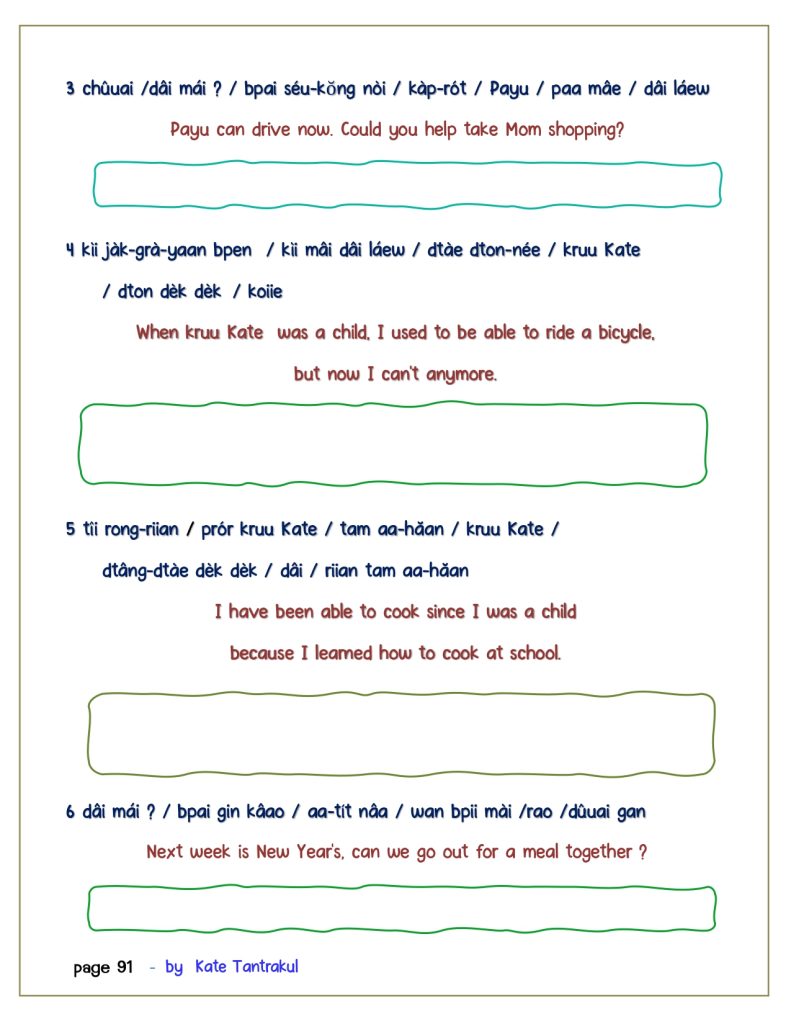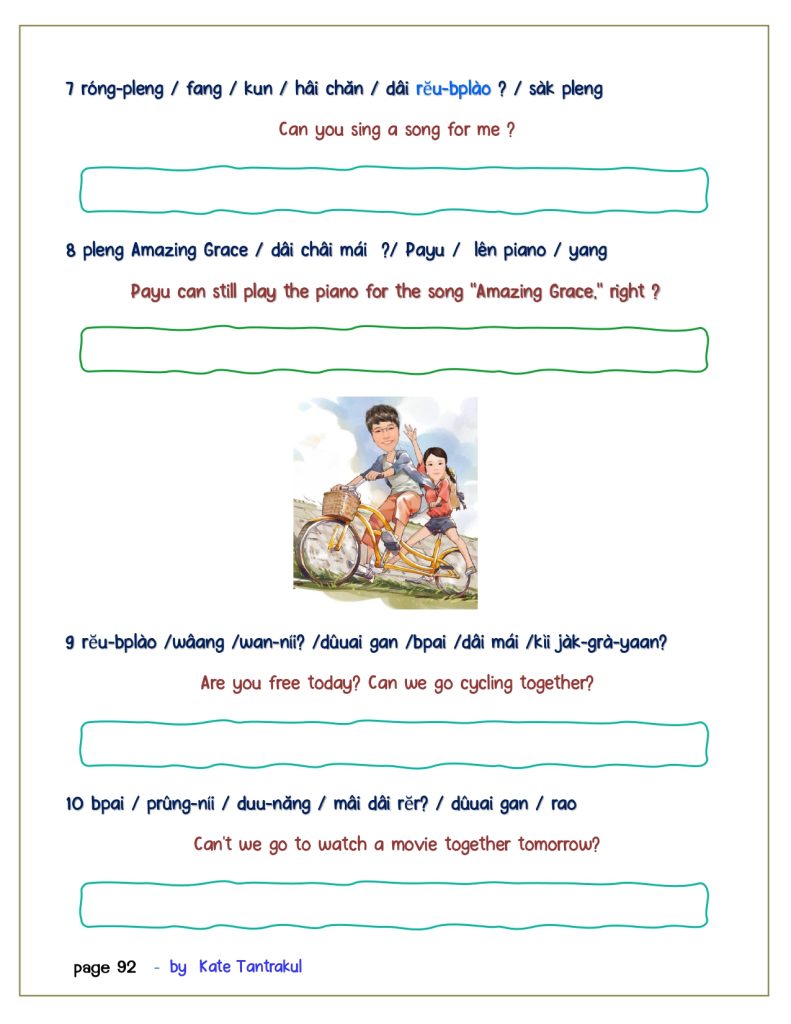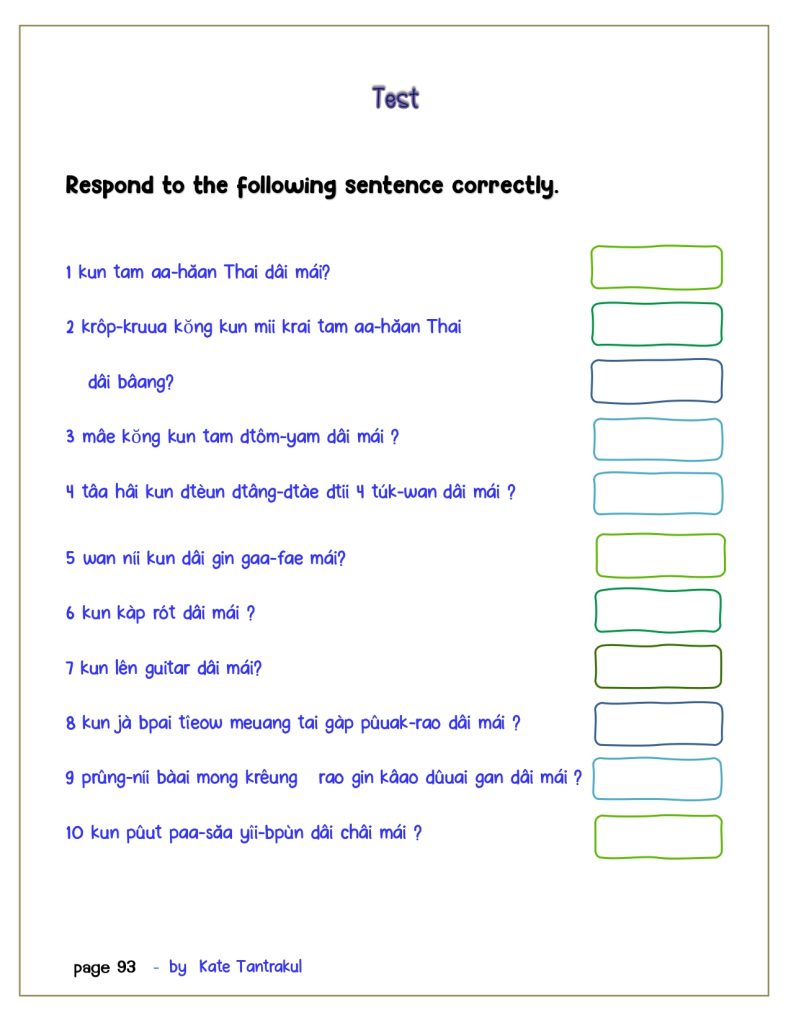Chapter 11
Grammar “can / cannot / did / did not “ in Thai (dâi & mâi dâi)
Learning how to use can, cannot, did, and did not in Thai is important for several reasons, as these are essential for forming sentences that express ability, permission, or past actions.
1. Expressing Ability or Permission (Can / Cannot)
- Can (dâi) and Cannot (mâi dâi) allow you to express whether someone is able to do something or not. These forms are important in everyday communication when discussing skills, abilities, or permission.
2. Talking About Past Actions (Did / Did Not)
- The past tense in Thai is usually indicated by context, but the use of did (dâi) and did not (mâi dâi)can help clarify actions that occurred in the past. It helps with creating clear, specific statements about past events.
3. Forming Negative Sentences
- Using cannot (mâi dâi) or did not (mâi dâi) is essential for negating sentences, which is a basic skill for expressing what someone is not able to do or what did not happen.
4. Asking Questions
- Understanding how to use can and did in questions is essential to ask for permission or inquire about someone’s past actions.
5. Building More Complex Sentences
- These words (can/cannot/did/did not) are crucial for combining clauses to make more complex, meaningful sentences. By using them, you can talk about your ability to do things, past events, or discuss permissions and restrictions.
6. Cultural Relevance
- The use of can/cannot or did/did not is crucial for politeness in Thai. These expressions can show respect for the listener’s situation or provide additional context for your actions. Knowing when to use them properly will enhance your communication and cultural understanding.
